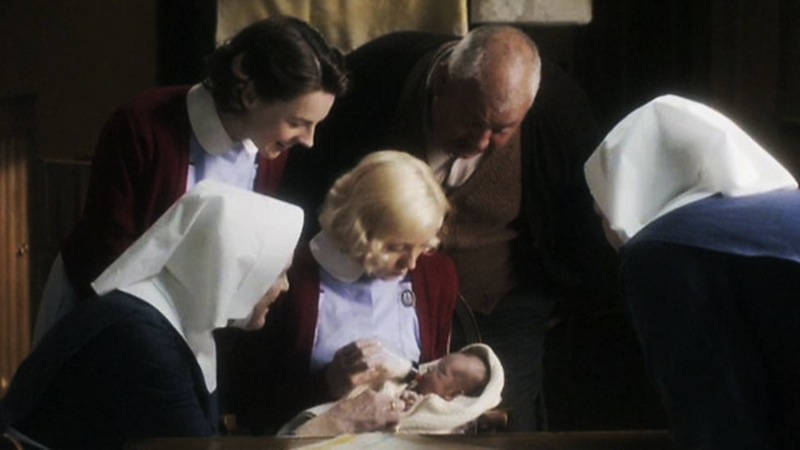Call the Midwife
Melissa Reeser Poulin
 I’ve been flat on the couch for weeks, pinned down by constant nausea and fatigue that feels like a five-ton weight on my chest. It feels like there are two of me: the one with responsibilities and a datebook and the one with a body. Every day is an awkward dance between the two. One hauls the other into the shower, the car, the classroom, and back. One draws the other’s thoughts away from lesson plans and toward baby names and a countdown of weeks and the persistent fear of loss.
I’ve been flat on the couch for weeks, pinned down by constant nausea and fatigue that feels like a five-ton weight on my chest. It feels like there are two of me: the one with responsibilities and a datebook and the one with a body. Every day is an awkward dance between the two. One hauls the other into the shower, the car, the classroom, and back. One draws the other’s thoughts away from lesson plans and toward baby names and a countdown of weeks and the persistent fear of loss.
Never much of a TV watcher in the past, suddenly I’m a Netflix addict. For thirty blissful minutes, the waves of nausea can be tamed or at least forgotten while Lorelei and Rory Gilmore tackle wonderfully banal problems involving a lost baby chick or the dull paint color of the local diner. Then I discover the BBC series Call the Midwife, based on the memoirs of midwife Jennifer Worth in postwar East London.
“How can you watch this?” my husband asks after pausing to watch an episode with me. “It’s so heavy.” Like most episodes, this one is bookended by birth and death. Nurse Jenny and Sister Julienne make a house call by bicycle to a laboring woman in a dark tenement apartment. A teenage girl hides her pregnancy from her parents, giving birth alone and leaving the child on the sisters’ doorstep. And Jenny serves as district nurse to Mrs. Jenkins, a woman living in isolation and poverty, traumatized after losing five children to life in a workhouse many years before.
The stories mirror each other, connecting seemingly disparate lives through common suffering and fierce love. In each story there is a mother separated from her child, and a deep desire for forgiveness and closure. In the end, the teenage girl is reunited with her baby, and her parents come to accept both of them into the family. Jenny scours the public records to locate the public grave where Mrs. Jenkins’ children are buried, and she accompanies her there to finally say goodbye to her children.
Yes, this is heavy stuff, but it’s full of beauty, too. These scenes depict women ministering to the very poor, serving with great kindness and care for people who have been neglected and forgotten. In episode after episode, I see courageous women bring their children into a world that is not perfect, that holds hardship and suffering as much as it holds love and compassion. It doesn’t leave me dry-eyed, but I don’t think it’s just hormones. My husband sticks around to watch with me, and he cries too.
One day around week 15 I feel hungry again. I get up from the couch and start to take regular walks and do a little yoga. At the halfway mark now, I’m still likely to conk out at 8:00 p.m., but I don’t spend nearly as much time on the couch. I may be past the first trimester, but I’m not sure I’ve really kicked my Netflix habit. It’s just that, due to the brain’s weird powers of association, I can’t hear the theme song for The Gilmore Girls anymore without feeling sick to my stomach. And I’ve run through all three seasons of Midwife.